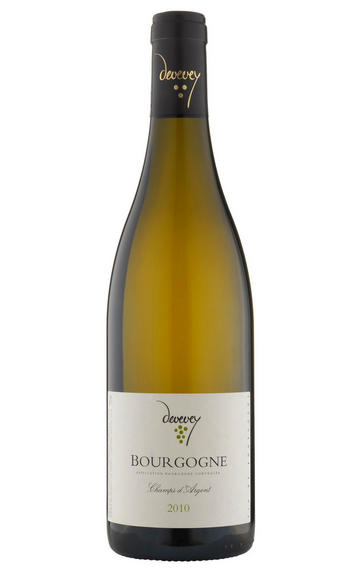
About this WINE
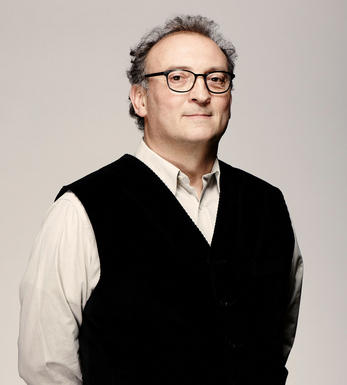
Jean-Yves Devevey
You wouldn’t know it from his laid-back manner, but Jean-Yves Devevey is a busy man. Built from scratch, his domaine today amounts to eight hectares of vines.
His holdings can be described as “diminutive but demanding”, especially when one considers his exacting standards, including organic farming.
A popular figure among his fellow Burgundian winemakers, Jean-Yves is also something of a maverick, who has been flying the flag for low-sulphur wines since 2010. Moreover, he’s the only Burgundian we work with to have planted Savagnin – sadly, the wine is not for sale.
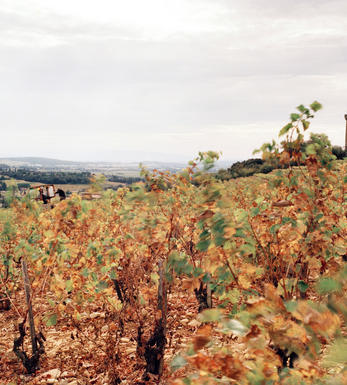
Bourgogne Blanc
Bourgogne Blanc is the appellation used to refer to generic white wines from Burgundy, a wide term which allows 384 separate villages to produce a white wine with the label ‘Bourgogne.’ As a result of this variety, Bourgogne Blanc is very hard to characterise with a single notable style, however the wines are usually dominated by the presence of Chardonnay, which is just about the only common factor between them. That being said, Chardonnay itself varies based on the environmental factors, so every bottle of Bourgogne Blanc will vary in some way from the next! Pinot Blanc and Pinot Gris are also permitted for use in Bourgogne Blanc under the regulations of the appellation.
As Bourgogne Blanc is very much an entry-level white wine for most regions in Burgundy, prices are usually very reasonable, and due to the terroir and climate of Burgundy, Bourgogne Blanc wines tend to have a strong acidity to them, combined with a vibrant and often fruity palate when compared with other whites from the New World, say, allowing fantastic matchmaking with many different kinds of food.
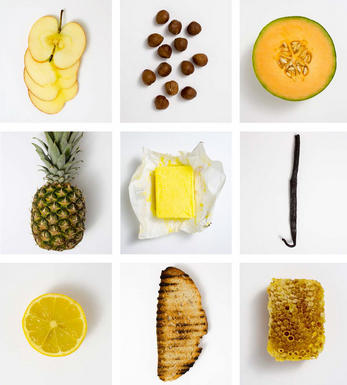
Chardonnay
Chardonnay is often seen as the king of white wine grapes and one of the most widely planted in the world It is suited to a wide variety of soils, though it excels in soils with a high limestone content as found in Champagne, Chablis, and the Côte D`Or.
Burgundy is Chardonnay's spiritual home and the best White Burgundies are dry, rich, honeyed wines with marvellous poise, elegance and balance. They are unquestionably the finest dry white wines in the world. Chardonnay plays a crucial role in the Champagne blend, providing structure and finesse, and is the sole grape in Blanc de Blancs.
It is quantitatively important in California and Australia, is widely planted in Chile and South Africa, and is the second most widely planted grape in New Zealand. In warm climates Chardonnay has a tendency to develop very high sugar levels during the final stages of ripening and this can occur at the expense of acidity. Late picking is a common problem and can result in blowsy and flabby wines that lack structure and definition.
Recently in the New World, we have seen a move towards more elegant, better- balanced and less oak-driven Chardonnays, and this is to be welcomed.


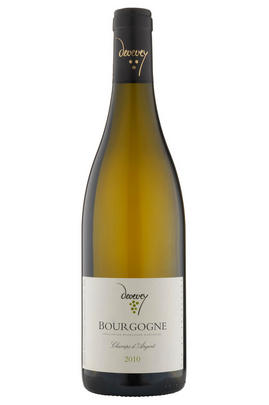
Buying options
Add to wishlist
Description
A blend of some Bourgogne Blanc grapes from near Chassagne for body and texture, and the Champs Perdrix vineyard in the Hautes Côtes de Beaune for energy and minerality. The colour remains pale and alluring but the bouquet has developed a richness of fruit with some saline notes. Vibrant acidity on the palate, fresh and delicious, there’s an awful lot of wine in the glass for the price.
Jasper Morris MW, Burgundy Director
The indefatigable Jean-Yves Devevey has enjoyed a good year, with new vineyards in place and the burden of debt from having created his own business from scratch now largely paid off. His whites have been consistent in both quality and value for some time, but 2010 marks a step forward with the reds. He has taken a gentler approach to the vinification, with a shorter time in vat and less intervention, so as to accentuate the graceful fragrance of the Pinot Noir grape.
The three reds and the two less expensive whites are domaine wines while the two Chassagnes and the Meursault are produced from purchased grapes – regular contracts with the same producers each year.
wine at a glance
Delivery and quality guarantee